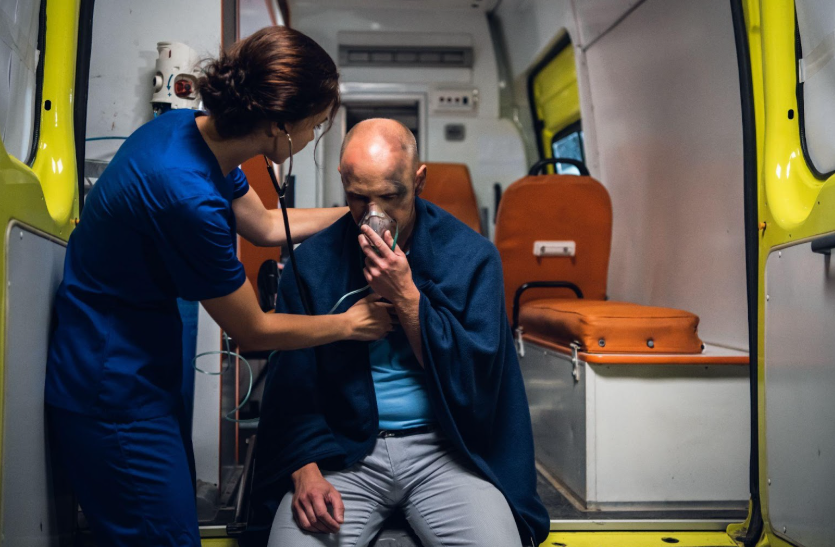All You Need to Know about Reproductive Organ Cancers
All You Need to Know about Reproductive Organ Cancers

Cancer can develop in any body part, and the reproductive system is no exception. While less common than other cancers, understanding reproductive cancers will help you understand the risks, symptoms, and available options.
Ovarian Cancer
Ovarian cancer starts in the female reproductive organ, the ovaries. This cancer is often called the "silent killer" because its symptoms are usually vague and appear only in the advanced stages.
Risk Factors and Symptoms
Women with a family history of ovarian or breast cancer, those with certain genetic mutations (such as BRCA1 and BRCA2), and older women are at higher risk. Symptoms include bloating, pelvic pain, abdominal swelling, and difficulty eating. These symptoms can be mistaken for less severe conditions, leading to a delayed diagnosis.
Diagnosis and Treatment
Doctors use pelvic examinations, imaging tests (like ultrasounds and CT scans), and blood tests (including the CA-125 test) to diagnose ovarian cancer. Treatment typically involves surgery to remove the ovaries, followed by chemotherapy to kill any remaining cancer cells. Also, detecting it early improves the chances of successful treatment.
Uterine Cancer
Uterine cancer is the most common cancer of the female reproductive system and affects the lining of the uterus.
Risk Factors and Symptoms
Factors that increase the risk include obesity, a history of endometrial hyperplasia, and estrogen therapy without progesterone. Individuals may show symptoms like abnormal vaginal bleeding, pelvic pain, and pain during intercourse or urination.
Diagnosis and Treatment
Doctors diagnose uterine cancer through pelvic exams, ultrasound, and biopsy. Treatment starts with surgery to remove the uterus (hysterectomy), sometimes combined with radiation therapy, chemotherapy, or hormone therapy. Early diagnosis leads to better outcomes and a higher chance of curing the disease.
Prostate Cancer
Prostate cancer affects the prostate gland, which produces seminal fluid in men. It is one of the most common cancers in men, particularly older men.
Risk Factors and Symptoms
Age, family history, and race (with higher rates among African American men) are significant risk factors. Symptoms may include difficulty urinating, blood in urine or semen, erectile dysfunction, and pain in the lower back or pelvis.
Diagnosis and Treatment
Doctors use digital rectal exams (DRE) and prostate-specific antigen (PSA) tests to screen for prostate cancer. If these tests indicate potential cancer, a biopsy is performed. Treatment options vary based on the stage of cancer and include surgery, radiation therapy, hormone therapy, and sometimes active surveillance for less aggressive cancers. Early-stage prostate cancer often has a high survival rate.
Testicular Cancer
Testicular cancer develops in the testicles, the male reproductive glands that produce sperm and testosterone. It is relatively rare but most common in younger men aged 15–35.
Risk Factors and Symptoms
Undescended testicles, family history, and abnormal testicle development increase the risk. Symptoms include a lump in either testicle, a feeling of heaviness in the scrotum, and discomfort in the groin or scrotum.
Diagnosis and Treatment
Doctors diagnose testicular cancer through physical exams, ultrasound, and blood tests for tumor markers. The treatment includes surgery to remove the affected testicle (orchiectomy) and radiation or chemotherapy, if necessary. Testicular cancer has a high survival rate, especially when detected early.
Human Papillomavirus (HPV) and Reproductive Cancers
HPV is a common STI that can cause abnormal cell growth, potentially leading to cervical cancer in women and certain cancers in men, including anal cancer and some types of head and neck cancers. Vaccination against HPV is highly recommended for both boys and girls at the ages of 11-12 years, as is practicing safe sex to prevent the spread of HPV.
Why Early Detection Matters
Early detection is important for the successful treatment of reproductive cancers. This is mainly because the cancer at the initial stage is often smaller and hasn't spread to other parts of the body. This allows for less aggressive treatments with higher success rates and better long-term outcomes.
Early detection also improves the chances of preserving fertility and overall quality of life. By being aware of symptoms and attending regular screenings, you can fight reproductive cancers with the best possible chance of success.
Preventive Measures and Awareness
Maintaining a healthy lifestyle can reduce the risk of some reproductive organ cancers. For example, a balanced diet, regular exercise, and avoiding smoking can lower the risk of many cancers.
Genetic testing can help individuals with a family history of cancer understand their risks and consider preventive measures. You must also practice safe sex using condoms to reduce the risk of STIs, including HPV.
Treatment Options Available
Treatment options for reproductive cancers vary depending on the type, stage, and individual health factors. Common approaches include:
- Surgery: This may involve removing the affected organ(s) entirely or, in some cases, only a portion. For instance, in early-stage ovarian cancer, surgeons might remove one ovary and fallopian tube.
- Chemotherapy: This uses powerful medications to destroy cancer cells throughout the body. It's often administered after surgery (adjuvant therapy) to eliminate any remaining microscopic cancer cells.
- Radiation Therapy: High-energy rays target and destroy cancer cells in this type of treatment. Depending on the specific cancer and its stage, it can be used before or after surgery.
- Hormone Therapy: This treatment disrupts the hormones that fuel certain cancers' growth. Depending on the specific case, this treatment may be sufficient on its own or used alongside other therapies.
Survivorship and Long-Term Outlook
Survivorship after a reproductive cancer diagnosis involves ongoing monitoring and adjustments to life after treatment. This includes:
- Follow-up Care: Attend regular follow-up appointments with healthcare providers to monitor for recurrence, manage long-term side effects, and promote overall health.
- Health Maintenance: Adopt healthy lifestyle habits, including regular screenings, exercise, and nutritious eating, to support long-term health.
- Emotional Well-Being: Address emotional and psychological aspects of survivorship through continued support from healthcare professionals, support groups, and counseling services.
- Celebrating Milestones: Acknowledge and celebrate milestones in your cancer journey, such as completing treatment milestones or achieving personal goals.
Are you worried about reproductive cancer? Don't face it alone. At
LA Cancer Network, we offer expert care, cutting-edge treatments, and compassionate
support for all your reproductive health needs.
Reach out to us and take charge of your health today.






















